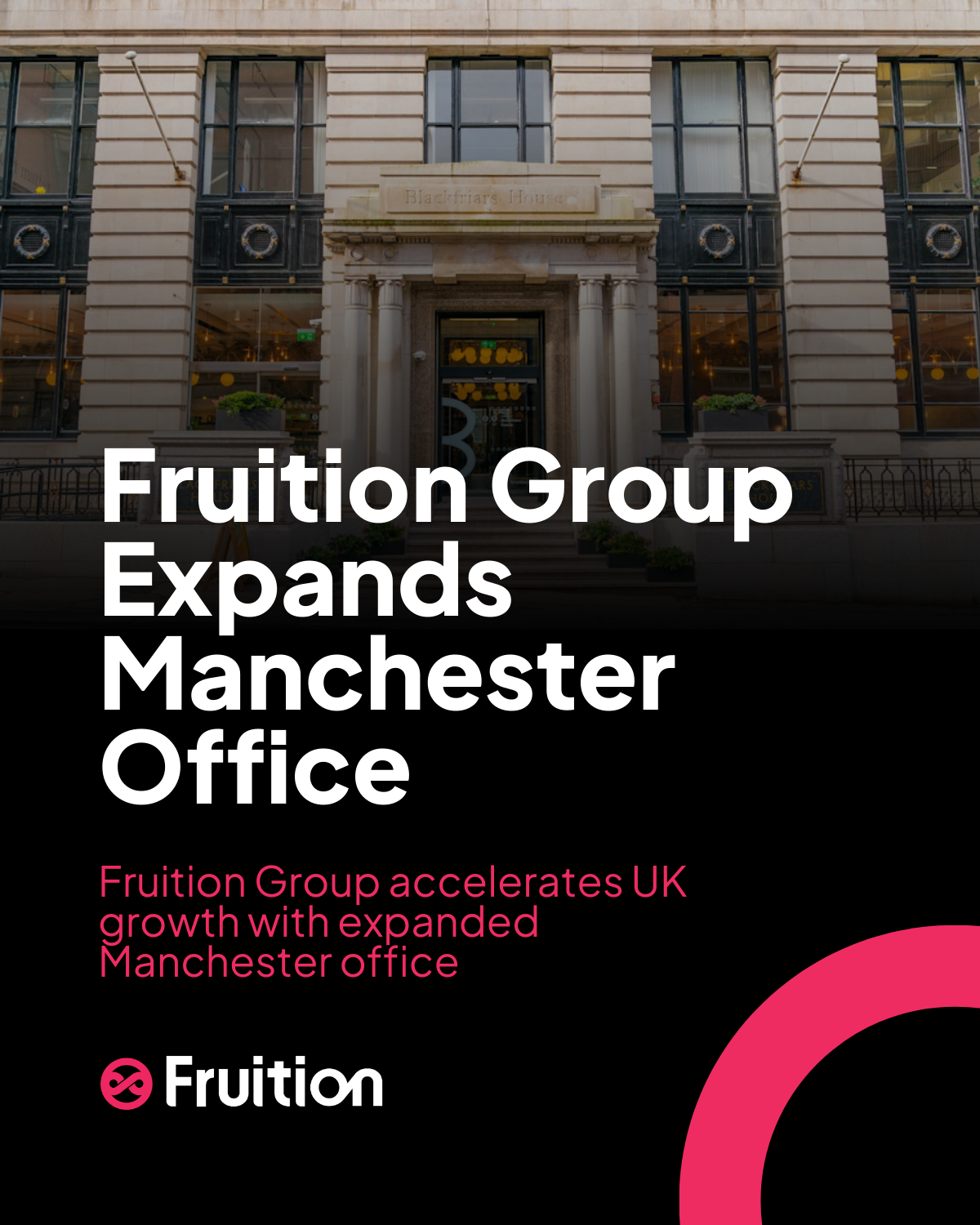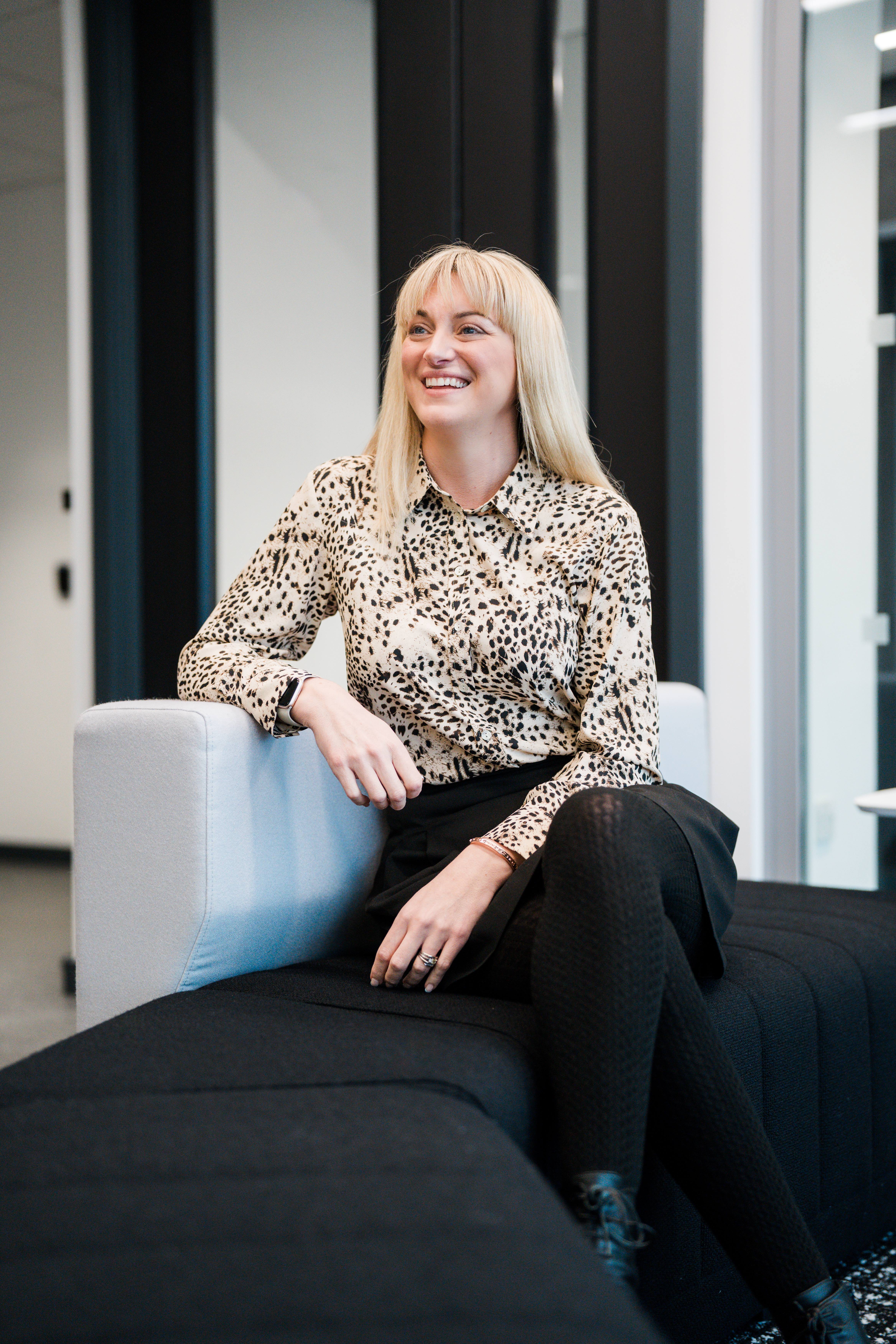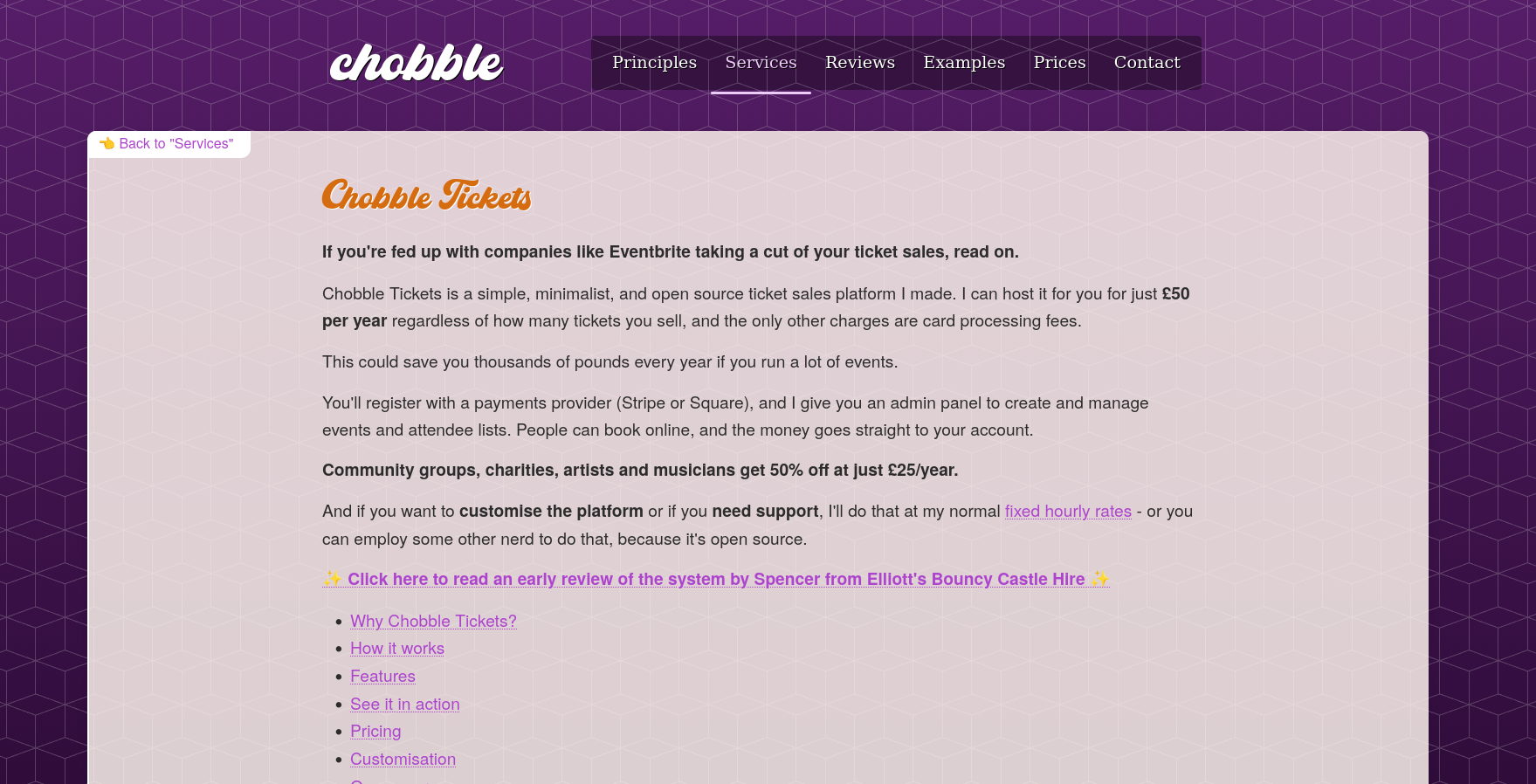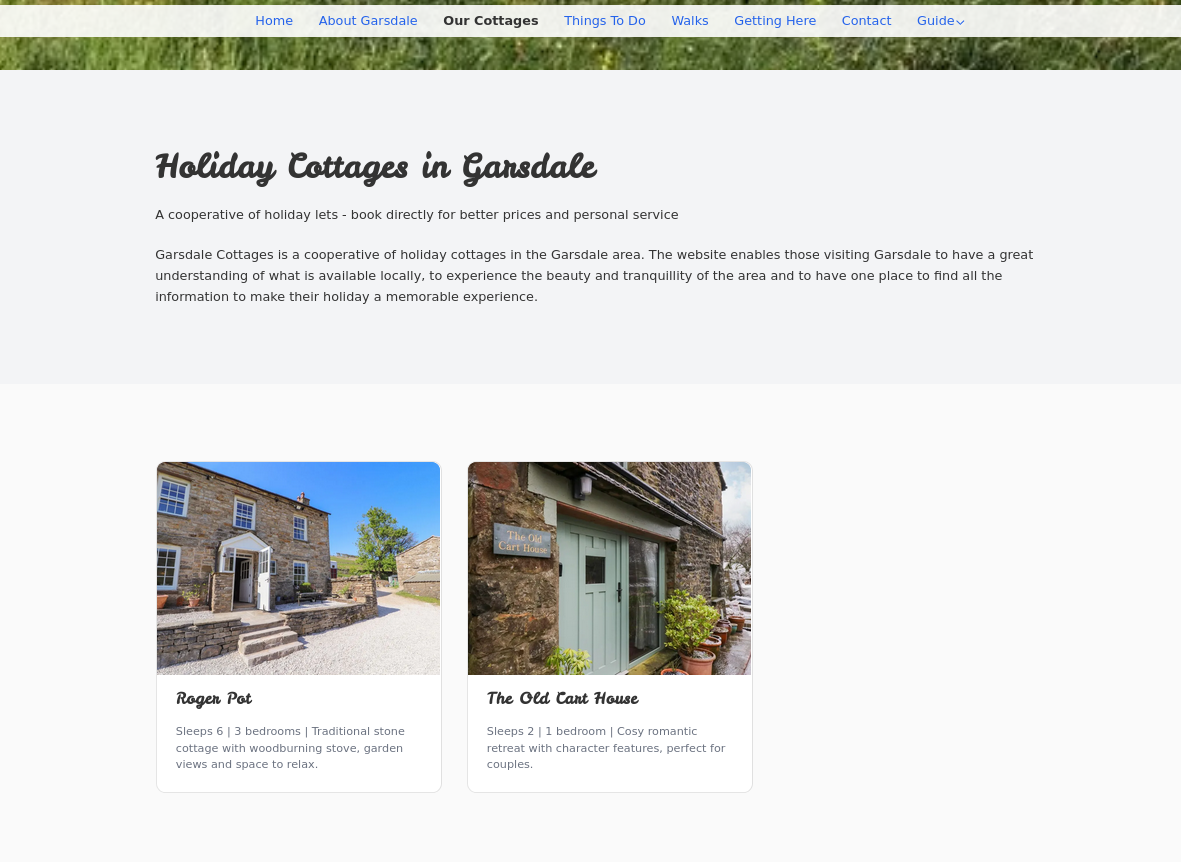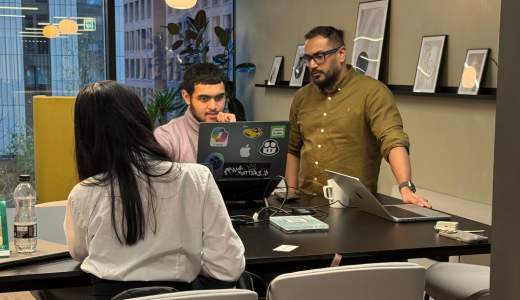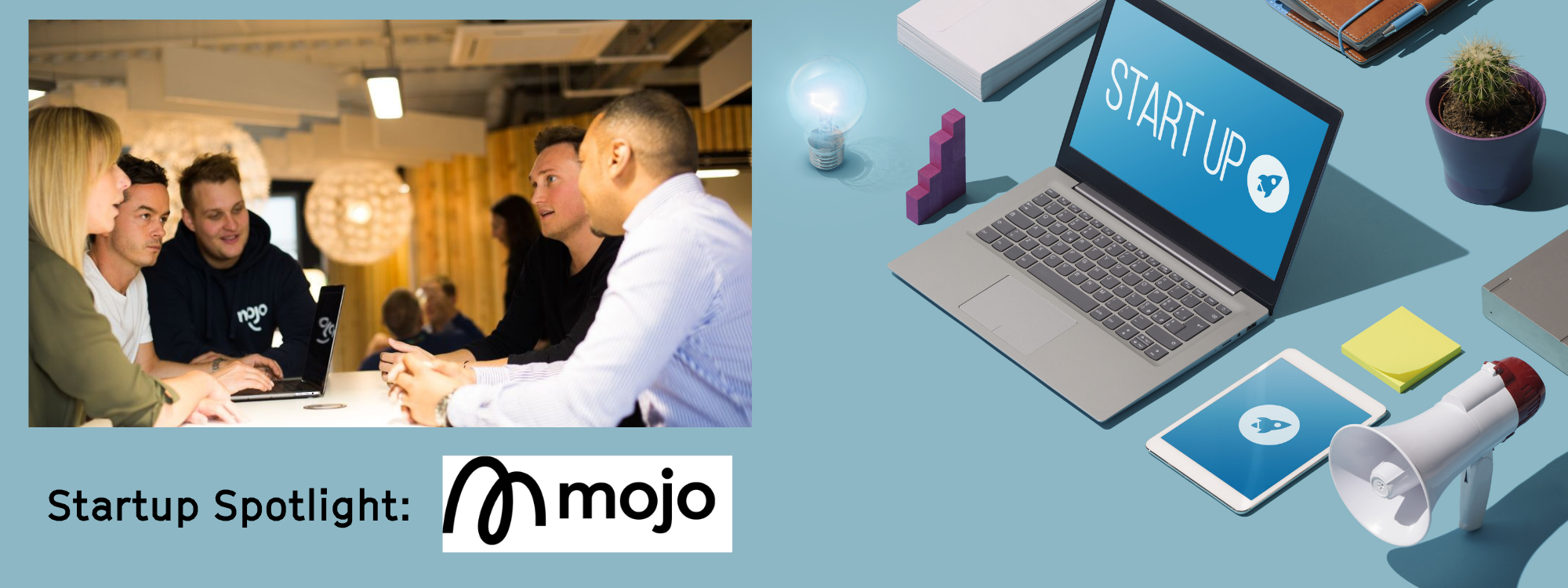
Mojo Mortgages are one of Manchester’s most innovative new companies, making great waves within the fintech sector. As such, we wanted to spend some time with their CEO and co-founder, Richard Hayes, to find out a little bit more about the company.
In this interview, Richard talks about Mojo Mortgages’ proposition and plans, his take on the investment scene, some of the challenges the business has faced and what he thinks the next big thing to disrupt the sector will be.
Richard also talks about why he is looking forward to being a part of Manchester Digital’s Fintech Forum. If you would like to attend, follow this link but for now, let’s hand over to Richard...
Could you tell us a little bit about Mojo Mortgages?
My name's Richard Hayes, I'm the CEO and co-founder of Mojo Mortgages; we set up Mojo in August 2016 with the main purpose of disrupting the mortgage market. We wanted to have an impact on not only the colleague experience and what it's like to work as a mortgage broker, but also on customer experience. Our mission is to really evolve the way in which customers go about learning about mortgages, comparing mortgages and also applying for mortgages. In our view, it's quite an antiquated sector. There is a common feeling amongst customers that there is a distinct lack of transparency in financial services, and particularly in the mortgage market. For many people, getting a mortgage can feel complicated and painful and we are on a mission to make mortgages easy for everyone.
Also, the market's quite expensive – traditionally a broker will charge you around £500 for mortgage advice, as well as taking a fee from the lender. We believe mortgage advice should be available to all so we don’t charge the customer a fee. Also getting a mortgage can feel quite slow and arduous process. For a lot of people it takes a long, long time to even get to a mortgage offer, let alone buy the house. A mortgage offer can take up to 45 days-ish and the entire home buying process could take upwards of three or four months. It's a really long, slow process and it doesn't have to be.
There's also a lot of anxiety created in the market; when you apply for a mortgage, you get little visibility on the progress of your application and how you're getting on, and you can go for weeks without really hearing anything. And that naturally creates anxiety. Those three issues make up the three key issues within the space that we wanted to fix. And we've been trying to tick those individual pillars off over the past couple of years.
Why did you pick this space?
I'm from a financial intermediary background; I've worked in and around financial services for 12, 13 years and within a directly authorised and regulated space so this was an obvious choice because of the impact that we can have on the market. We felt that it was behind every other financial services market in terms of how it had innovated over the last 15 years, in terms of the customer experience and the colleague experiences. To this day, being a mortgage broker outside of this business, is a pretty painful job. It's lots and lots of data keying and yeah, it's not great.
All of that played a massive part. Also the reality is that the mortgage market is enormous. There's around 1.5 to 2 billion pounds worth of revenue generated by mortgage intermediaries on an annual basis in the UK alone – in fact, the mortgage market in the UK is the largest in Europe. So it's a huge market, one that the UK is already pretty famous for and we just felt that somebody needed to do something about making it better.
And could you describe what your role is now on a day-to-day?
Yeah, so my title is CEO but as with any startup and any founder in a startup, I'm still probably wearing four hats, I would say. My primary focus over the last 12 months has been building awareness of Mojo Mortgages and what we're doing, letting people know that we're real experts in our field and that we are really going about innovating and changing the way people find and apply for a mortgage. This means giving lots of talks to lenders and going to conferences and speaking about what we see the future of mortgages being.
I do a lot of fundraising too. Some of your readers may have seen that we raised some cash earlier this year. Right now, we're going through another funding round so we'll be topping up the Series A investment with some additional capital too.
Overall, I would say, at heart I'm a product guy, so my favourite bit of my job is evolving our product and proposition. I think that's where, when I've got time, I like to be. I spend my time pouring over user sessions, looking at user behaviour, reading feedback and really understanding and analysing the data and getting to grips with how can we evolve Mojo to be a better product for more customers.
I’m also responsible for partnerships, which is a key part of our business.
What does that entail?
So that entails onboarding new partners effectively, winning that business.
We announced recently that we partnered with Monzo. This means that we're now in a relationship with Monzo whereby we're evolving their mortgage proposition as part of their marketplace play. We're currently trialing to 2,000 Monzo users, that went live two, three weeks ago. And then obviously looking to grow that trial out, but we're partnering with other businesses as well.
As you mentioned, you received seven million in Series A funding. How have you found the investment process as a whole?
Hard. Investment, in general, is hard. I mean you're giving away a bit of what you've built, but you're giving it away because you know that it's going to take you further and it's going to allow you to achieve all the things that you've set out to. Without investment, we couldn't dream of impacting the number of lives that we want to impact when it comes to getting a mortgage. But it's still a really hard process. And when you've not been through that process before, which we hadn't, there's so much to learn.
You've got tons to learn, especially when you go from seed to Series A. The rounds are very, very different. Usually you'd get seed investment from angels and then you usually get Series A or B taking investment from institutional investors. And they expect to see lots, lots more information – your t's have got to be crossed and your i's have got to be dotted.
Big step up, I imagine?
It's a massive step up and then there's so many things that can catch you out. Like on the day we were signing, we were sat at our solicitor’s in Manchester, one o'clock in the morning literally about to sign all the documents and somebody chirped up and said, "We need you to prove that you own mojomortgages.com." And you're just like, "How do we do that? Can we give you a screenshot in AWS?” You know what I mean; it's just these little things – you have to get every single base covered.
But we've been very fortunate with the investors that we've got at the table right now. They massively support the business, they're following on in this next investment round. And yeah, both have been mega supportive, as have our seed investors.
So what's to come with the next level of investment and what are your plans?
From our perspective it's about really evolving the proposition. We've got something that we're working on right now, which is called Mortgage Score, which is basically taking the concept of a credit score and then aggregating other data from other sources.
Think open banking data, so things like proving your identity and then understanding a bit about your circumstances like how much you earn, how much have you got saved up for a deposit, and then aggregating all of that data and giving you a mortgage score back instead of a credit score. This is useful because you may have a 999 credit score but it might not mean you could buy a house, so we’re trying to make it way more tangible, way more useful to a customer.
We are also focused on partnering with more third parties, building out what we call our platform team to basically support the evolution of our platform so that we can integrate with more partners.
Aside from investment, what other challenges do you face? What are the key ones?
Growth. With any tech-enabled business going through rounds of investment, there's an absolute expectation that we grow, almost exponentially. And that we completely supersede any precedents previously set in terms of growth.
That's a massive part of our challenge over the next three, four years. We are going after 5% market share within our sector in a four-year timeframe. And that's going to be a ginormous challenge but it’s one that we are up for! We know we can achieve it, but growth is a huge challenge. We have to ensure we have the ability to scale from a technology perspective, making sure that the infrastructure and the environments allow for that scale without constantly refactoring everything.
People, too, adding the right people, developing the right team. Without the right people and the right team all of this is impossible. And I guess they're sort of key areas that we focus on as we and evolve.
Before I came here, I noticed that you have an excellent Glassdoor review, people seem to like working here. Could you describe the culture within Mojo Mortgages?
So I'm wearing a cool T-shirt today and my T-shirt says, "Get s**t done."
And I would describe our culture as a group of passionate, empathetic, but disciplined individuals who get a kick out of getting s**t done. And that's been an evolution. It's taken time to get to where we are right now. We still have a lot of work to do too. As we grow the team and the business scales there’s naturally a lot of change. This can really unbalance a culture so this is a constant focus for us. We are well aware that this is ongoing, culture isn't a project or a piece of work that’s ever done. Being really honest the culture still isn’t where I aspirationally want us to be. I think behaviourally, in terms of the way in which we work with each other, I would definitely say that there's a lot of passion in this business and we're going in the right direction.
So what steps do you take to sort of bring about the culture that you want them?
Lead by example. We're still a small enough business that most people within this organisation get a feel for who I am and how I behave and how I interact with people and what's important to me. And so I see a huge part of my role as CEO as trying to develop and evolve that culture. And I take it really, really seriously. But you can't do it on your own.
A learning curve for me was appreciating that, and making sure that I empowered people around me to share that same message. And then people around them also get to share that same message. And that's a process. And that's a journey that we're still on really. And we've got so much more to get sorted out, we're nowhere near there but we're certainly getting there.
The other key thing is communication. I think so many businesses forget that when they go from 20 to 40 to 50 to 60 people, that there's this expectation that everybody knows what's going on and actually there isn't.
When people don't know, even on a high level, what's going on, that creates anxiety, it creates fear and insecurity, and rightly so. We all know that teams do way better, and scale much quicker when they feel safe, so another big part of that is making sure that we try and communicate the mission, the vision, and what we're trying to achieve as an organisation and what our key values are as a business, on a regular basis to ensure the culture stays as we want it to stay and keeps evolving in a positive way.
So now looking a bit at the sector, how is technology disrupting the lending industry and what do you think the sector's future looks like?
Primarily, I think, technology is there to impact cost, speed and experience. And it's doing an okay job. The sector as a whole still has a lot more work to do. Even if you compare us to say car finance as an example, a car finance intermediary has APIs directing to lenders; lenders probably give those businesses access to score cards, decisioning, all that kind of stuff so that they can actually bring some of that work further up the funnel, and give customers real-time feedback.
Mortgage finance is still in a world where the applications that we submit to lenders are manually worked by human beings. So although credit scores still play a part in the decision, so does affordability and the vast majority of affordability assessments are still done by humans at the lender side. This means that we can only go as quickly as the lenders go to a certain extent – now we've tried, as a business, to bring some of that stuff forward ourselves and to try and evolve that experience by taking some of the onus ourselves and starting to make educated decisions on where we think lenders are going to play and not going to play, and how they are going to think about that customer when we send the information over to them but there's definitely some work still to do from a lender perspective.
Is that the onus behind creating a mortgage score for people to shorten that time?
Yeah. Absolutely. At the moment, if you want to know you can get accepted for a mortgage, you need to go and speak to a mortgage lender. The whole concept that we're trying to evolve with Mortgage Score is so that you can sign up to Mortgage Score and we'll be able to tell you really, really quickly what your likelihood is for getting accepted.
I mean, perfect example, and we see this one quite a lot ironically, lenders hate it when customers spend a load of money at the bookies. They don't like gambling and if you’re consistently spending two or three pounds a month in the bookies, a lender is going to look at that and go, "I don't like that." Not because they're discriminating, because they think it's a risk to them getting their mortgage payment. From our perspective, it's about an education piece – it's about evolving that customer's appreciation and understanding of what's important to getting on the property ladder.
You mentioned Monzo at the start of the interview. So you've connected with the world of who's disruptive in the market. What's your insight into what’s the next big thing that's going to come along and disrupt the market?
I mean, it's probably been said a million times before, but data. Data is enabling so many businesses to create far more meaningful customer experiences. I'm not talking about the Facebook mining-style data; I'm talking about businesses like us genuinely using the data that you provide us so that we can give you more back. How we evolve that data asset in a way that we can create far more meaningful and valuable customer experiences – from our perspective that’s the next big thing.
To give you something a bit more tangible, I guess in terms of a product, clearly the challenger banks are really testing the status quo. They’re really challenging the way in which we interact traditionally with a bank. They've still got a lot to do but they are absolutely focused on the right things in terms of giving customers a better choice, a better opportunity to save money and get a real handle for money. A bank has been where you put your money, and I think in the future a bank is going to be how you manage your money. It's that evolution in how we use that data to give you that insight back. And Mojo's effectively taken on that same mantel of saying, ‘you give us insight, we'll give you way more back’, hopefully that saves you time, it saves you money, it saves you getting stressed out.
And do you see any kickback on when you see them talk about data to consumers, do the walls come up?
I think the reality is you've got to be really clear, whenever we collect data from a customer, they're either knowingly giving it to us or we're asking consent to collect it. We're making absolutely no shortcuts. But from our perspective it's all about the value that that consent brings so that when we ask a customer for consent to do a soft search, it's all about explaining the proposition, that it will get you to an eligibility decision much quicker, and it doesn't impact your credit so there's no need to really worry about it. The credit world's evolved now so that we can run a soft search on somebody and it has zero impact on your credit score.
If you had everything you wanted from a data perspective, what would be the end result for the consumer?
Significantly quicker applications and a much higher likelihood of them getting accepted for a mortgage, and the speed in which that mortgage is offered to that customer. It's about time efficiency. You've seen that dream house but there's three other people viewing it. Give us a load of information, we can tell you tonight whether you can get a mortgage on it. You don't have to wait for an appointment in the next two weeks from your bank. Give us insight, you could be laying in bed in your pajamas and we can tell you whether you can get that mortgage or not.
Manchester's building a reputation as a Fintech Center of Excellence. What more do you think needs to be done to help the sector within Manchester?
Well, we could all do more to shout about it, I think. There's definitely a lack of funding for fintechs outside of London, and even as we go through our funding rounds, you speak to investors and you're like, "We're in Manchester." And they're like, "Oh, oh right." And you almost feel a little bit like you're fighting an uphill battle.
What do you feel that is?
I don't know. I think there's an expectation that Fintech happens in London but I do think that that's being disrupted and what I will say is, over the last 12 months there’s been a noticeable change in investors' appetite to invest outside of the M25 – that can only be a good thing. I think if you look at fintech businesses in Manchester, for instance, it's probably only us and AccessPay that have raised anywhere near close to 10 million quid. There's a couple of other ones coming up and some other really fantastic businesses but in terms of actually raising capital and scaling significantly and maybe going multi-territory, then there's less businesses. Obviously, there's also Zuto. who raised in excess of 10 mil, so there are businesses that are doing it but I think it's because there's not an announcement once a week about a fintech raising capital, people assume things aren’t happening.
If we look at the two biggest pieces of PR that we've knocked out over the last six months, the biggest piece was our Monzo announcement. The second one, our fundraiser also enjoyed a lot of coverage so it does carry a lot of weight getting PR out there and if you're not announcing those types of things then you almost go a little bit unnoticed. That’s not to say those businesses aren't good because they are, they're great. And they're probably growing and they've probably got fantastic NPS scores and they're really moving the needle from a revenue perspective, but they're just not getting the wider recognition.
Manchester Digital do a lot to help our members to shout about the work that we do, aside from that, as a trade body, what do you believe Manchester Digital should do more of?
I was pleased to see the Fintech Forum being announced. I’ve signed up for that and I’m really glad someone is focusing on the sector. I definitely think having niche meetups is really valuable. Although I guess Fintechs are not really a niche anymore, it’s booming isn't it? It's very in vogue but I think the direction is great.
Get involved!
If you want you to be featured on our site, contact thom@manchesterdigital.com to arrange an interview.
